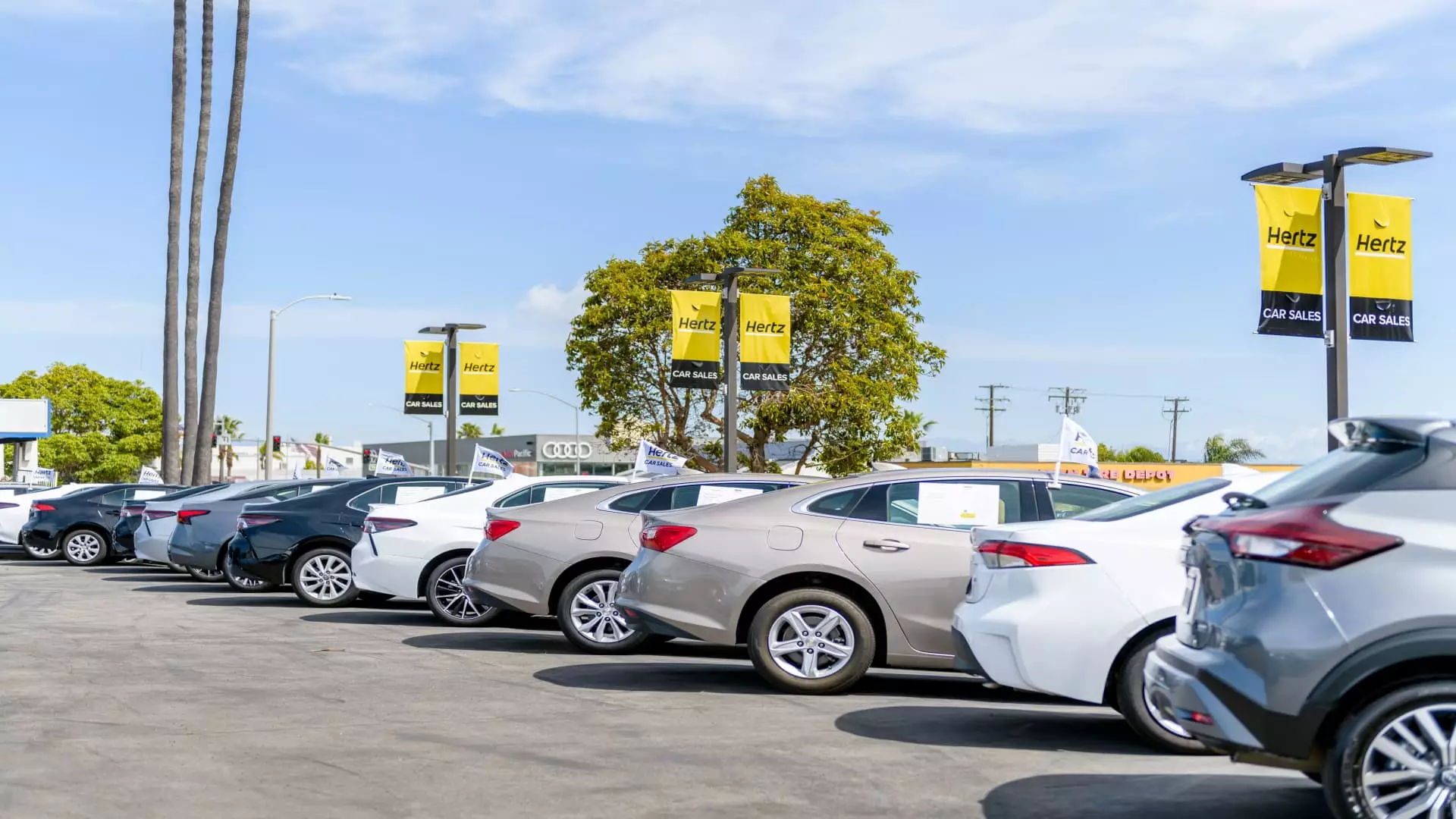Hertz’s recent decision to venture into the online used-car marketplace via Amazon Autos represents more than a simple business expansion—it signals a significant shift in how traditionally brick-and-mortar rental companies are trying to adapt to a rapidly changing retail landscape. For decades, Hertz’s core competency revolved around rental fleets, but it’s evident they recognize that survival hinges on diversification and digital transformation. This partnership not only attempts to modernize Hertz’s operations but also tests the limits of online car purchasing, an arena still fraught with skepticism and logistical hurdles.
Driving this move is Hertz’s desire to leverage Amazon’s colossal customer base and advanced e-commerce infrastructure. It’s a gamble rooted in optimism—Hertz expects to tap into a broader audience, boosting profits and brand visibility at a time when the rental business is still rebounding from pandemic chaos. Yet, this strategic move exposes Hertz’s vulnerability: can a rental giant truly thrive in retail car sales, a domain historically dominated by dealerships, not online giants? The partnership’s success relies heavily on whether consumers are ready to divest from conventional dealerships and embrace purchasing vehicles in the virtual realm.
Will Digital Convenience Be Enough to Overcome Market Skepticism?
The concept of purchasing a vehicle online is still mired in distrust among many potential buyers. The traditional car-buying process—testing, inspecting, negotiating—has its roots in experience and physical touchpoints. Cutting-edge digital convenience, such as e-signatures and online browsing, certainly lowers barriers, yet it may not be enough to sway all consumers. The risk lies in whether customers are willing to forgo the tactile experience and confidence that comes from visiting a dealership.
Hertz’s partnership with Amazon taps into the broader cultural shift toward online shopping, but vehicles are not everyday commodities; they are significant financial investments loaded with emotion. It remains to be seen if the average buyer, now accustomed to instant gratification with Amazon and other e-commerce giants, will be equally comfortable purchasing high-ticket items like cars without in-person interactions.
Moreover, this strategy emphasizes scale—initially available in only four cities, with plans to expand to 45 nationwide—yet, does geographic limitation threaten broader success? The initial regions—Dallas, Houston, Los Angeles, and Seattle—are diverse markets, but their key characteristic is their urbanity and technological savvy. Extending this model to rural or less-connected markets could pose logistical and trust issues, ultimately limiting reach and profitability.
Economic Realities and the Future of Car Retail Innovation
Hertz’s foray into Amazon Autos shouldn’t be viewed in isolation; it is part of a broader industry realignment catalyzed by technological advancement and shifting consumer preferences. Hertz’s hope is that this partnership will revolutionize the perception of used-car buying, making it as effortless as ordering a book or gadget. However, the economic implications are complex.
On the one hand, digital retail can reduce overhead costs associated with traditional dealerships—showrooms, sales personnel, and inventory management—potentially increasing profit margins. On the other hand, thoroughly vetting used vehicles online requires robust quality assurance, transparent histories, and customer support, which may be challenging to scale without damaging quality or reputation.
Hertz’s strategic push is also influenced by its recent financial struggles, including bankruptcy and a faltering entry into EVs. Their focus on expanding the retail side is an attempt to diversify revenue streams and reduce dependence on rental operations, which remain vulnerable to external shocks. This model—selling used cars online at scale—may prove profitable if executed correctly, but it might also expose the company to new risks associated with online fraud, misrepresentation, and customer dissatisfaction if quality control isn’t maintained.
Center-Right Perspective: A Market-Friendly Solution or Risky Overreach?
From a center-right liberal perspective, this gambit aligns with the belief in free markets, innovation, and consumer choice. By partnering with Amazon, Hertz is applying market discipline—driven by consumer demand for convenience and transparency—rather than relying on protectionist or monopolistic approaches. It exemplifies the entrepreneurial spirit that pushes industries forward, emphasizing customer-centric solutions and technological integration.
Yet, critics could argue that such rapid expansion into online car sales risks commoditizing vehicles, stripping away the nuanced, dealership-based experience that fosters trust and local economic vitality. There’s a danger that big tech corporations, with their focus on scale and efficiency, could homogenize vehicle buying, reducing the personalized service that has historically justified dealerships’ value proposition.
Nonetheless, fostering competition and embracing digital innovation can lead to more favorable prices and improved services for consumers, provided the market remains fair and transparent. Hertz’s leveraging of Amazon’s platform demonstrates an understanding that the economy benefits from dynamic, adaptive businesses that seek efficiency while respecting consumer rights. This push is a catalyst for modernizing the industry without disregarding traditional values of transparency and choice.
—
Hertz’s partnership with Amazon Autos is a daring attack on complacency within the automotive retail industry. Whether it will succeed or ultimately falter hinges on their ability to blend digital convenience with quality assurance and consumer trust. While the move aligns with the market-oriented philosophy of empowering consumers through innovation, it also risks overreach by rushing into a complex arena without fully addressing the inherent challenges of online auto sales. Only time will tell if this has the potential to redefine car purchasing or become a cautionary tale about the perils of overextending in a heavily regulated, emotionally charged market.


Leave a Reply